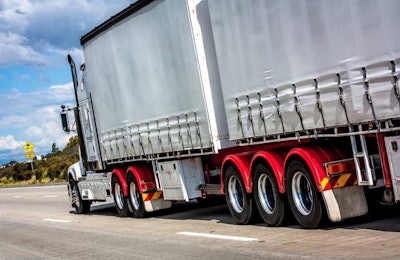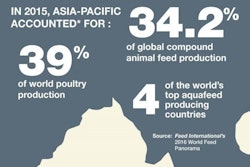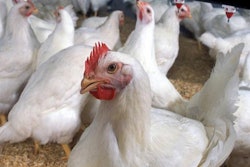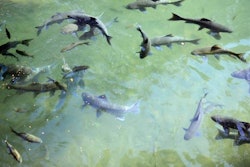
U.S. Food and Drug Administration’s (FDA) Food Safety Modernization Act (FSMA) final rule on Sanitary Transportation of Human and Animal Food has added some flexibility for the feed industry, but also added some inconsistent exemptions, according to the American Feed Industry Association (AFIA).
“Overall, FDA acknowledged industry best practices and standards and made changes to reflect those standards. They added in flexibility, which is appreciated,” said Leah Wilkinson, AFIA vice president of legislative, regulatory and state affairs.
The FSMA sanitary transportation final rule takes into consideration more than 200 comments submitted by the transportation industry, food industry, government regulatory partners, international trading partners, consumer advocates, tribal organizations and others, according to Megan Bensette, health communications specialist, office of foods and veterinary medicine, for the FDA.
“Each comment was evaluated with respect to whether granting the request would be consistent with the objective of the rulemaking and whether the comment presented the best way to accomplish that goal,” she said.
Some requests granted, others not
FDA acknowledged industry best practices in several places, most notably in the change from the proposed rule that would have required documentation of three previous loads for bulk containers, AFIA said. FDA will now require the carrier to provide, on request from the shipper, information about the most recent cargo transported in a bulk vehicle.
FDA changed the transportation operations for human food co-products intended for animal food that are not further processed to be exempt from the requirements of the rule. If the human food co-products are being sent for further processing, then FDA concluded they are not exempt as the recordkeeping and inspection requirements are appropriate and not burdensome.
“The rationale FDA gives in Response 75 for why they are choosing exempting human food co-products that won’t be further processed and going straight to a farm is that these products are only going to one or several farms and they are often spread on the ground. FDA does not provide any scientific rationale. A finished animal food that is enclosed in a package is exempt; but a finished animal food in a bulk truck – going to one farm and could be spread on the ground – is not?” Wilkinson said. “Feed facilities are already implementing most of these practices. It seems strange that FDA is deciding to exempt certain ingredients and not other ingredients or finished products that could be going to the same farm and also not being further processed.”
But Bensette said the FSMA sanitary transportation final rule is focused on preventing contamination before it occurs, specifically by ensuring that persons engaged in the transportation of all food, including animal feed, follow appropriate sanitary transportation practices.
“This may, for example, necessitate cleaning of a vehicle in circumstances where it is necessary to do so to properly prepare it for its next use,” she said. “Finished animal feed is almost always formulated to the dietary needs of a single species, and a nutrient for one species may be toxic to another.”
In excluding the transportation of human food by-products intended for use directly as animal feed from coverage by this rule, she said FDA recognizes that the scale of any risk that might result from transportation of by-products to farms would be localized and therefore limited. But she said this is not the case for by-products that would be transported to a processing facility.
“Should transportation practices result in contamination of these products, the incident would have the potential to affect a considerably larger amount of food, which is likely to be more broadly distributed,” Bensette said.















